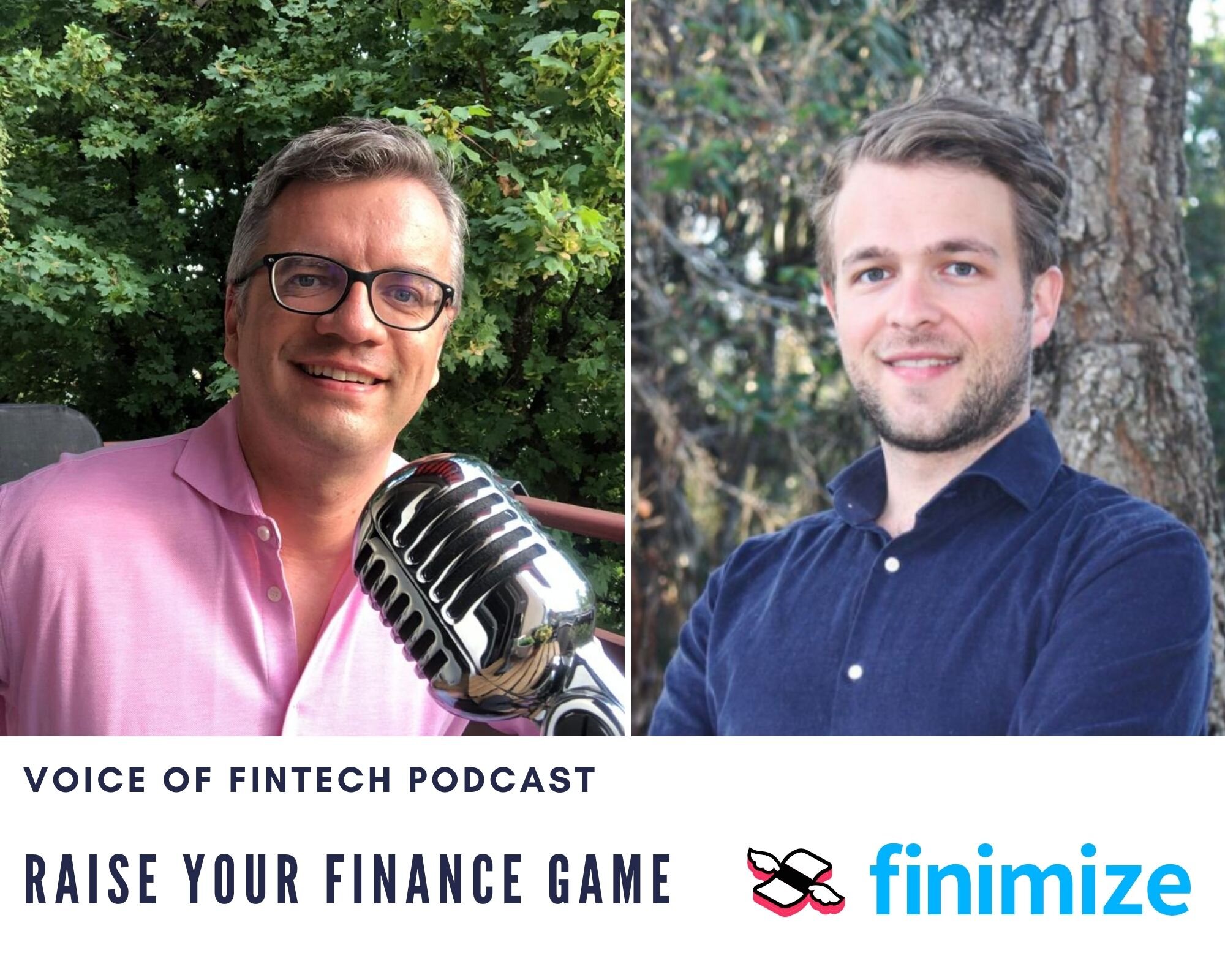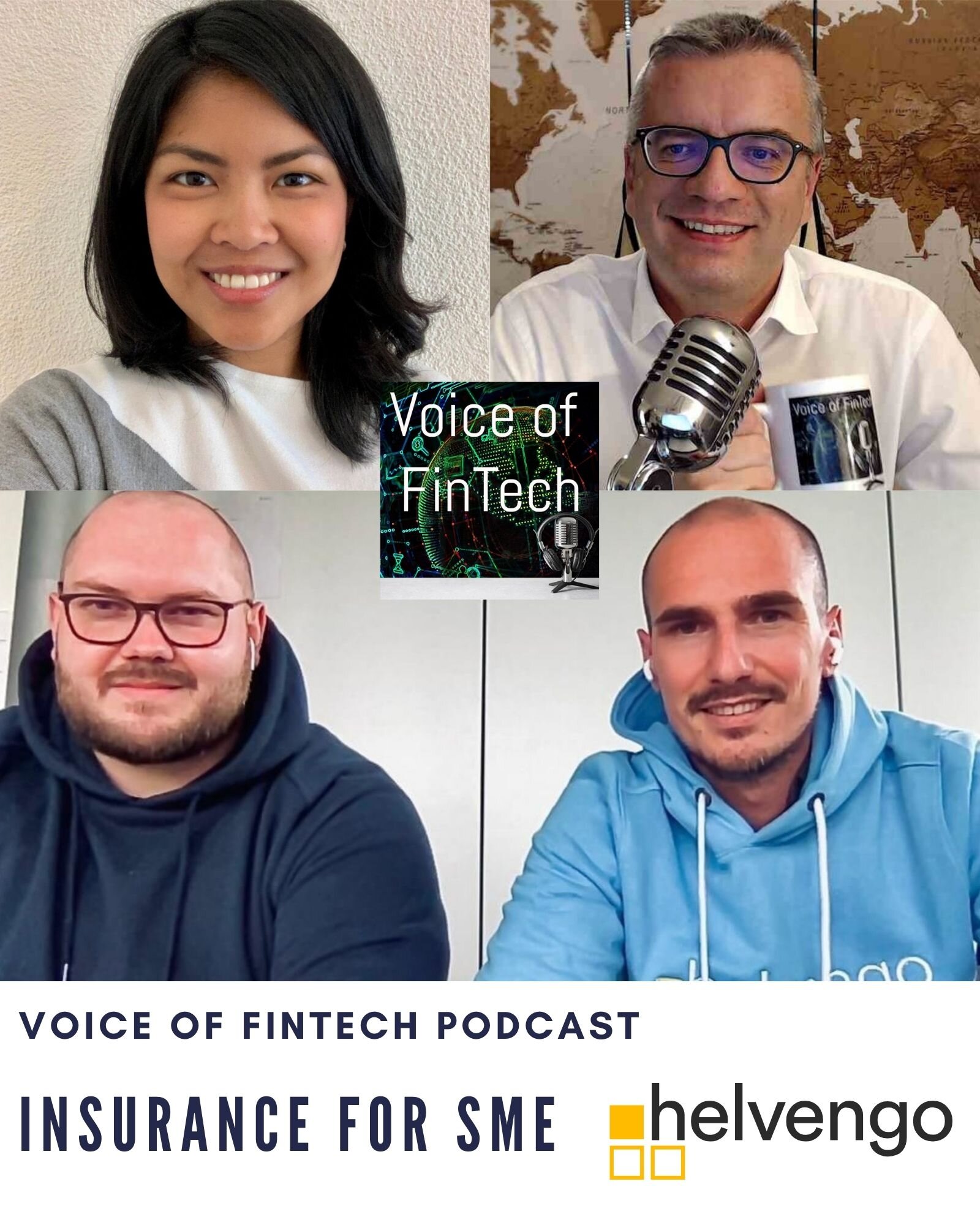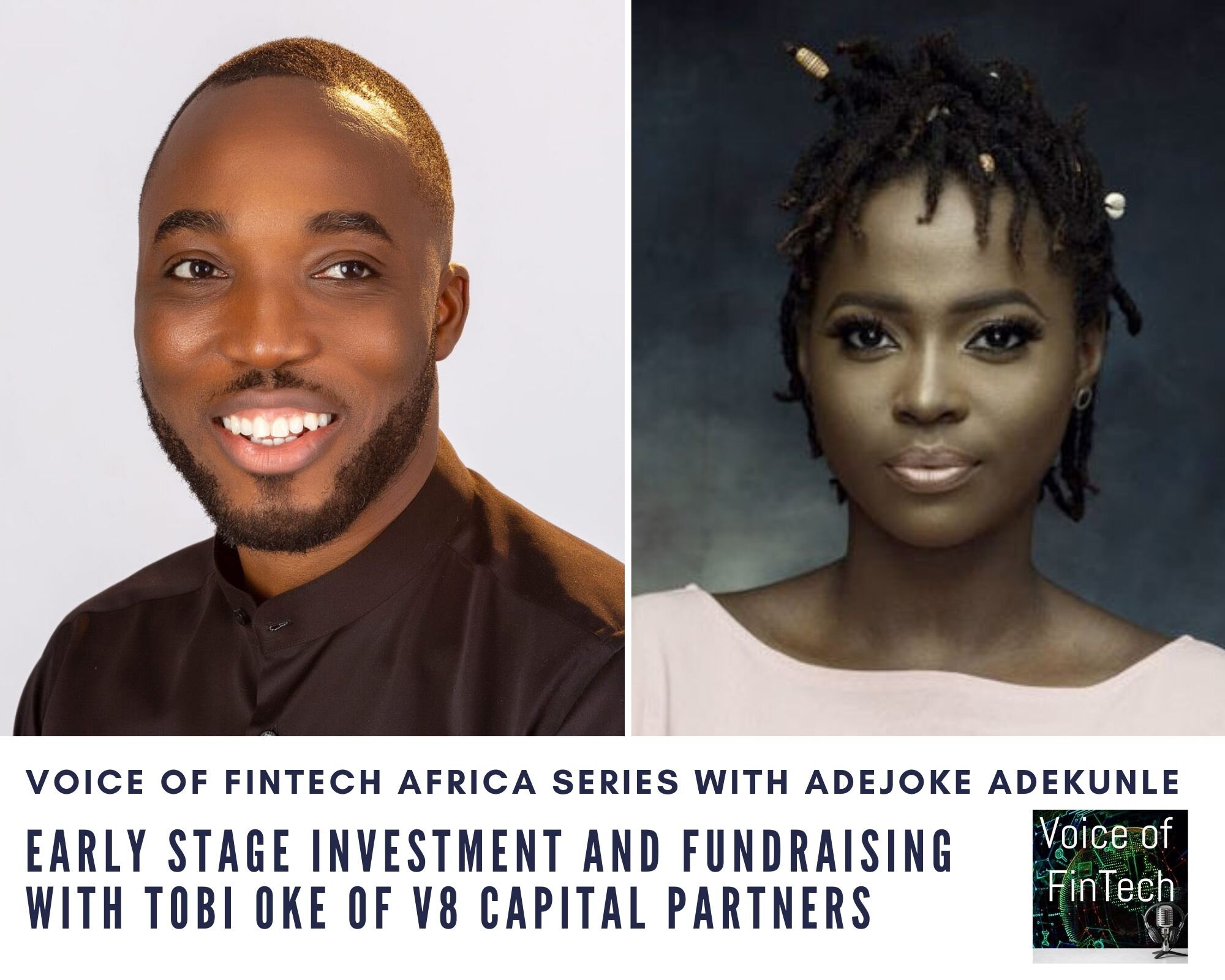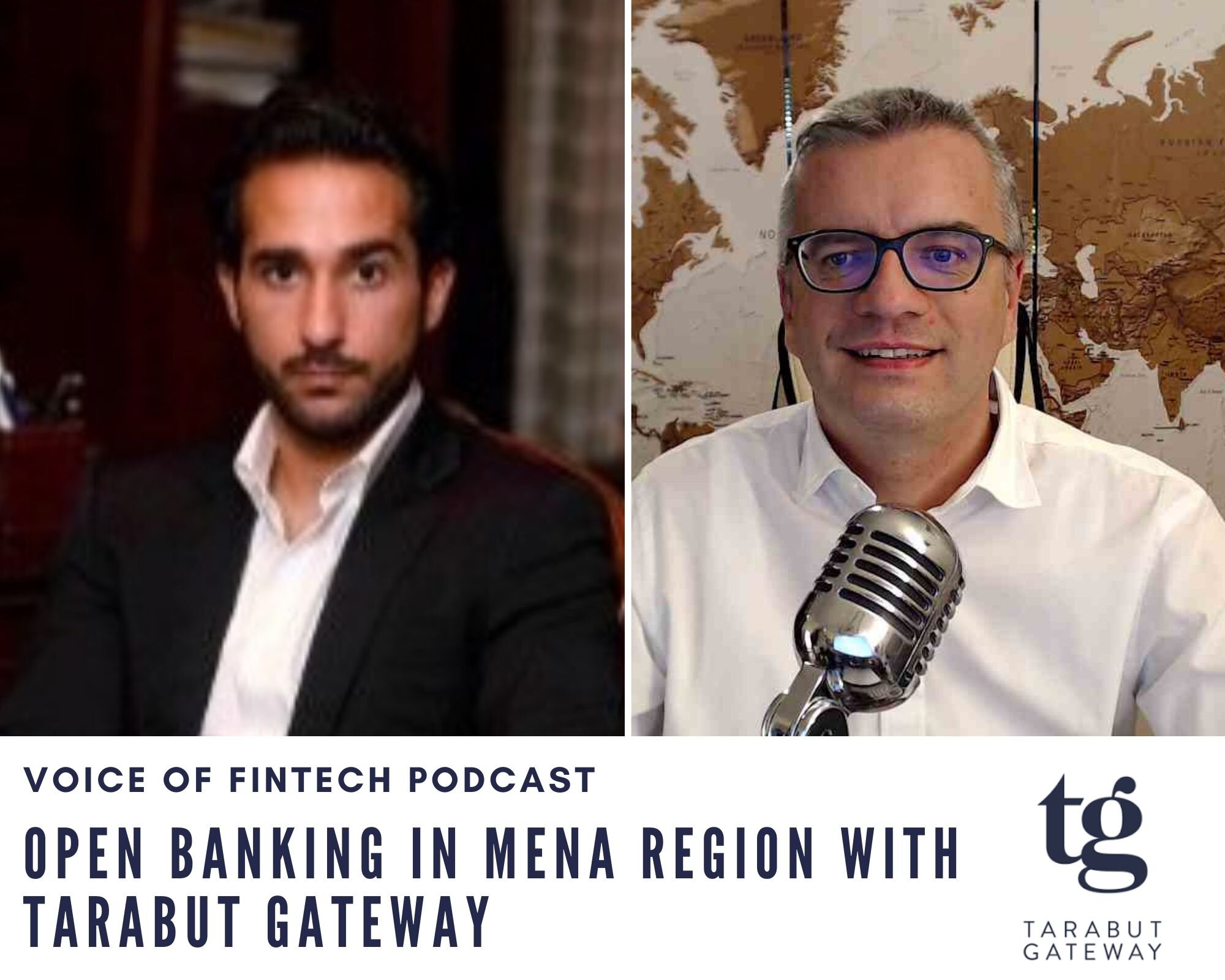May summary!
In case you missed out on the May episodes of the Voice of FinTech podcast, here is the monthly summary! You can listen to all the episodes on the Episodes pages of this website or when you subscribe to your favorite podcast apps under Subscribe.
Financial Services need a radical overhaul: PE perspective
Miroslav Boublik, Managing Partner at Financial Services Capital spoke to Rudolf Falat, founder of the Voice of FinTech podcast, about how financial services firms held privately may have more appetite for a radical overhaul.
Here is what they covered:
Miroslav backstory (e.g. former Managing Partner at Home Credit International VC arm)
Financial Services Capital is "a new generation Private Equity firm". What does it mean?
Origins of the firm
What’s your target fund size and where you with the fundraising?
Example of FinTechs FSC invested in: Nymbus.
Deal sourcing and investment approach
Funding availability for early-stage and growth companies in Europe vs. the US or Asia?
Favorite business book: Benjamin Graham's Intelligent Investor
Wrap up: appeal to inspiring entrepreneurs to learn more about Financial Services Capital and approach you if they meet your criteria
Americas Series with David Yakobovitch: How to master banking for your small businesses with Ryan Conway from Oxygen
David Yakobovitch spoke to Ryan Conway, SVP, Head of Business Development & Strategic Partnerships at Oxygen about how Oxygen improves banking for SMEs.
Here is what they covered:
FinTech evolution
Fintech industry trends
Predictions for fintechs and traditional banking
FinTech 1.0 - unbundling
FinTech 2.0 - rebundle multiple products
FinTech 3.0 (smart money/ AI)
Crypto
SME banking
Now more than ever, the importance of banking for small businesses
Banking for small businesses
Oxygen recently announced a partnership with Fundera (Nerd Wallet) to help small businesses and self-employed people who were largely left out of the 1st PPP round
COVID-19 and banking
How COVID has changed banking
Digital banking is here to stay and traditional banks have to be prepared to handle all aspects of their business through digital channels
COVID-19 has also been the biggest digital acquisition driver and many customers are finally embracing their digital tools, but fintechs have re-examined ways to drive every account process to be more efficient and user friendly
Brand equity
Creating and maintaining brand equity
Ex: Robinhood/ GameStop stock situation
Oxygen's journey
Oxygen’s milestones
Series A
Peek of products- segmenting of cards, the elevation of the brand, additional features
Best way to reach out
Raise your Finance game with Finimize
Maximilian Rofagha, the founder of Finimize, leading Finance community worldwide, spoke to Rudolf Falat, founder of the Voice of FinTech podcast, about how to raise your Finance game efficiently.
Here is what they talked about:
Max, tell us about how you got where you are today
You founded Finimize five years ago. Why? What’s your mission?
You have one million subscribers and you say you are the most engaged community in the world. How did you get started?
What is your key advice for community builders (online or offline) on how to grow their communities?
How have you been affected by the pandemic? I know you also organize in-person events – have you turned them to online and how different was it in terms of participation and engagement?
Finance education – in which areas have you seen the most significant demand? How does it differ among regions (say Europe vs. US or Asia)?
How do you manage different levels of education among your users?
How do you manage to keep the engagement level high? How do you learn what users like?
What’s in store for your this year?
Your favorite book (or a business-related movie)? Bloomberg by Bloomberg, Who is Michael Ovitz? Memoir -the autobiography of the co-founder of Creative Artists Agency, High Output Management by Andrew S. Gore, former Chairman and CEO of Intel
The best way to find out more about Finimize
Asia Pacific Series with Chia Jeng Yang 谢征阳: Open banking in South East Asia - Brankas example
In this episode of Voice of FinTech: Asia Pacific Series, Chia Jeng Yang, Principal of Saison Capital based in Singapore, speaks to Todd Schweitzer, CEO of Brankas, building Open Banking for Southeast Asia.
Todd Schweitzer is co-founder and CEO at Brankas, the leading Open Finance technology provider in Southeast Asia. Todd founded Brankas in 2016 to address the technology gaps that hindered fintech-bank partnerships. Today Brankas provides Open Finance technology to banks, insurers, mobile wallets, e-commerce platforms, alternative lenders, and other suppliers and users of financial services APIs. The company has since expanded to the Philippines, Vietnam, Thailand, Singapore, and Bangladesh, and its technology has enabled new fintech products and partnerships that serve millions of users around the region. Todd holds degrees in Economics and International Studies from the University of California, Irvine, and a Master in Public Policy from Harvard University's Kennedy School of Government. Todd currently resides in Manila, Philippines.
Chia and Todd talk about:
Brankas, the Open Banking platform for Southeast Asia - its journey so far and future roadmap
Common myths and opportunities for Open Banking
The state of Open Banking in the context of Southeast Asia as well as in the global fintech ecosystem
Exciting developments and potentials for Southeast Asia Open Banking
Insurance for SMEs with Helvengo
Vedran Pranjic and Benedikt Andreas, co-founders of Helvengo spoke to Wani Baumgartner, guest co-host and Finance and Life Sciences recruiter and Rudolf Falat, founder of the Voice of FinTech podcast about how to make insurance for SMEs more efficient and less painful.
Here is what they covered:
Why Vedran and Benedikt decided to start their own company?
What is Helvengo? How does it work?
What is Helvengo's unique advantage? How are you different from other solutions for SMEs out there?
How does Helvengo make money?
Why did they choose the B2B path?
Where are Vedran and Benedikt on their journey now
Lessons learned for potential entrepreneurs thinking of starting their own business
Next steps this year and beyond
Favorite business book: Delivering happiness, by Tony Hsieh, founder of Zappos
Best way to reach out
Africa Series with Adejoke Adekunle: Early Stage Investment and Fundraising with Tobi Oke of V8 Capital Partners
In this episode of the Voice of FinTech: Africa Series, Adejoke Adekunle, CEO of VVM Group and the founder of the African Tech Woman podcast, based in Lagos, Nigeria, spoke to Tobi Oke, Managing Partner at V8 Capital Partners, also based in Lagos, Nigeria.
Here is what they talked about:
Why does V8 Capital focus largely on early-stage companies?
V8 Capital portfolio companies
From all of these start-ups you have mentioned, I see some bits of fintech there; for example, Kobo360, a logistics platform, may at some points provide access financing service to their customers. What are your thoughts on the intersection between FinTech and other sectors in the start-up space?
What are the things that have helped Tobi get through in his investing career?
Tobi's views on fundraising in Africa; what has remained constant and what has changed recently
With the recent exit by Paystack and Flutterwave, which recently raised 170 million and also achieved unicorn status, we are seeing more interest from investors in FinTech companies in Africa - what's your advice on how FinTech start-ups can capitalize on this?
Fundraising tips for founders
What do you think are some understated industries where you see some strong potential for exponential growth and how are you preparing V8 Capital for that?
Voice of FinTech Americas with Clementina Giraldo (in Spanish / En español): FIRA y Mario Valle nos hablan del criptoarte tendencia global y su relación con FinTech
En este episodio de Voice of FinTech Americas Series, conducido por Clementina Giraldo, fundadora y CEO de Dots & Tech, con sede en Colombia, Clementina habla con FIRA, criptoartista colombiana y una de las líderes del criptoarte en América Latina y con Mario Valle Reyes, cofundador y managing partner de Altered Ventures, con sede en San Francisco, Estados Unidos, inversionista en videojuegos, realidad aumentada, realidad virtual, criptoarte y creador de Altered Gallery. Para ver las imágenes citadas en el episodio visitar http://alteredgallery.art/.
América Latina hace parte de la tendencia global de criptoarte. Conoce el proceso que le permitió a FIRA convertirse en la primera criptoartista de Colombia, los avances que ella ha alcanzado y los desafíos de la tecnología. Detalles del lanzamiento de Altered Gallery que reúne a más de 100 criptoartistas y realizará periódicamente convocatorias a artistas. Así como experiencias por parte startups líderes de la región como Platzi y la forma en que han promovido becas en educación por medio del criptoarte.
In this episode of Voice of FinTech Americas Series, hosted by Clementina Giraldo in Spanish, founder and CEO of Dots & Tech, based in Colombia, Clementina speaks with FIRA, a Colombian crypto artist and one of the leaders of crypto art in Latin America and with Mario Valle Reyes , co-founder and managing partner of Altered Ventures, based in San Francisco, United States, an investor in video games, augmented reality, virtual reality, crypto art and creator of Altered Gallery.
Latin America is part of the global trend of crypto art. Learn about the process that allowed FIRA to become Colombia's first crypto artist, the advancements she has made, and the challenges of technology. Details of the launch of the Altered Gallery that brings together more than 100 crypto artists and will periodically call for artists. As well as experiences by leading startups in the region such as Platzi and the way they have promoted scholarships in education through crypto art.
Open Banking in MENA region with Tarabut Gateway
Abdulla Almoayed, CEO and founder of Tarabut Gateway, spoke to Rudolf Falat, founder of the Voice of FinTech podcast, about open banking in MENA, why he set up the business UAE's ADGM (Abu Dhabi Global Market) in particular and his thoughts on data-driven innovation.
Here is what they covered:
Abdulla's back story
Reasons to start his own company
What is Tarabut? The problem that Tarabut is solving
Largest open banking platform in MENA - what is its unique advantage? How is it different from other open banking platforms?
Team in the UAE and abroad
Target customers
How can data-driven innovation break the curse of the oil industry?
Very first steps of starting the business
Growth plans after recent fundraising - hiring!
Best way to reach out
At the intersection of Insurtech and Real Estate with Derek Merrill (LeaseLock)
David Yakobovitch spoke to Derek Merrill, CEO of LeaseLock about how to get rid of one of the most painful steps in real estate transactions, paying a security deposit, by using technology. Derek is a product and financial technology-focused entrepreneur with a special interest in building data-driven products that service the enterprise.
As CEO, Derek leads the overall product, marketing, sales and engineering efforts at LeaseLock. Prior to LeaseLock, Derek founded Infreeda, a mobile advertising platform acquired by AT&T. Next, he founded MoVoxx, a pioneering mobile messaging ad network acquired by Motricity. In search of a large industry late to apply technology, Derek launched EverySignal to automate the detection of life events for insurance agents across social networks using natural language processing and machine learning. He later joined ZipRecruiter, the fastest-growing job.
LeaseLock's founding story
After being denied housing in New York City because he did not earn the requisite 80x the monthly rent to live at a certain building, co-founder Reichen Kuhl set out to solve this problem to help people at all rent levels ease the expensive move-in experience while still providing the financial protection apartment owners need. He joined the Mucker Capital accelerator program in 2014 where he met Derek who had been working with a small engineering and data science team. After meeting, the two joined forces and LeaseLock was founded.
LeaseLock's flagship product
LeaseLock's flagship product is “Zero Deposit” lease insurance. The company leverages artificial intelligence to eliminate security deposits and deliver the world’s first financial technology platform for enterprise rental housing. Its product seamlessly deploys through native property management systems, allowing properties to:
Market their communities as Zero Deposit to drive more traffic & leads
Replace upfront security deposits with a small monthly fee in the online leasing checkout
Automatically gain $5,000 insurance against rent and damage loss in-system
Automate the claims process in native receivables processes during move-out
Automate billing through our integrations with all major property management systems
LeaseLock leads the overdue disruption of the insurance and real estate industries
The multifamily industry is known to be somewhat hesitant to truly embrace change. Renter’s insurance is a prime example. It was years before operators recognized that requiring renter’s insurance did not negatively impact the ability to lease apartments, but rather, provided positive outcomes for both the resident and community.
Renter’s insurance is now status quo within the apartment industry. LeaseLock believes that the same will hold true for lease insurance as the leading replacement to security deposits.
Why security deposits and surety bonds are done
Security deposits are the most common way apartment owners shelter themselves from financial risk associated with residents.
Security deposits are extremely expensive for the renter and require a significant amount of administration for an owner to manage.
Surety bonds and other security deposit alternatives have been in the multifamily industry for quite some time. But these don’t always benefit both parties.
Surety bonds may answer the affordability pain point for renters as they are less expensive than security deposits, but they fail to offer sound risk mitigation for operators. Also, bonding companies run collections on renters for claims paid to the property, resulting in a damaged reputation
Lease insurance is a seamless replacement for both of these practices that benefits both residents and properties. With LeaseLock’s “Zero Deposit,” renters pay a small monthly deposit waiver fee in place of an upfront security deposit along with their monthly rent and properties gain over $5,000 in coverage per lease on the standard plan
LeaseLock's B2B Model ultimately benefits the consumer
LeaseLock is NOT insurance for the resident, it’s a deposit waiver program that makes the leasing experience more affordable.
LeaseLock doesn't deal directly with residents, but residents do benefit from a lower barrier to access rental properties.
Renters do not need to apply to LeaseLock (unlike deposit alternatives/surety bonds), and LeaseLock does not run collections on renters for claims paid to the property
LeaseLock's mission
LeaseLock exists to power a faster, simpler, more affordable rental transaction. Ultimately, LeaseLock aims to help people at all rent levels have a smoother and more affordable move-in experience while still providing the financial protection apartment owners need. We help the world find a home
LeaseLock is, at heart, a technology company
LeaseLock created an entirely new category of insurance powered by AI
LeaseLock is engineering a financial technology platform that removes friction, cost, and regulatory risk from apartment operators’ operating infrastructure
Conclusion
Because LeaseLock sells to properties, its lease insurance product does not need to be sold by leasing staff and doesn’t require out-of-workflow application processes
If you’re an apartment owner/operator, feel free to reach out today to learn more about what LeaseLock can do for you
If you have suggestions for topics or guests on the show or have ideas about how to make this podcast better for you, please e-mail us at info@voiceoffintech.com. Alternatively, you can also leave a voicemail here.
Keep safe!
Sincerely,










